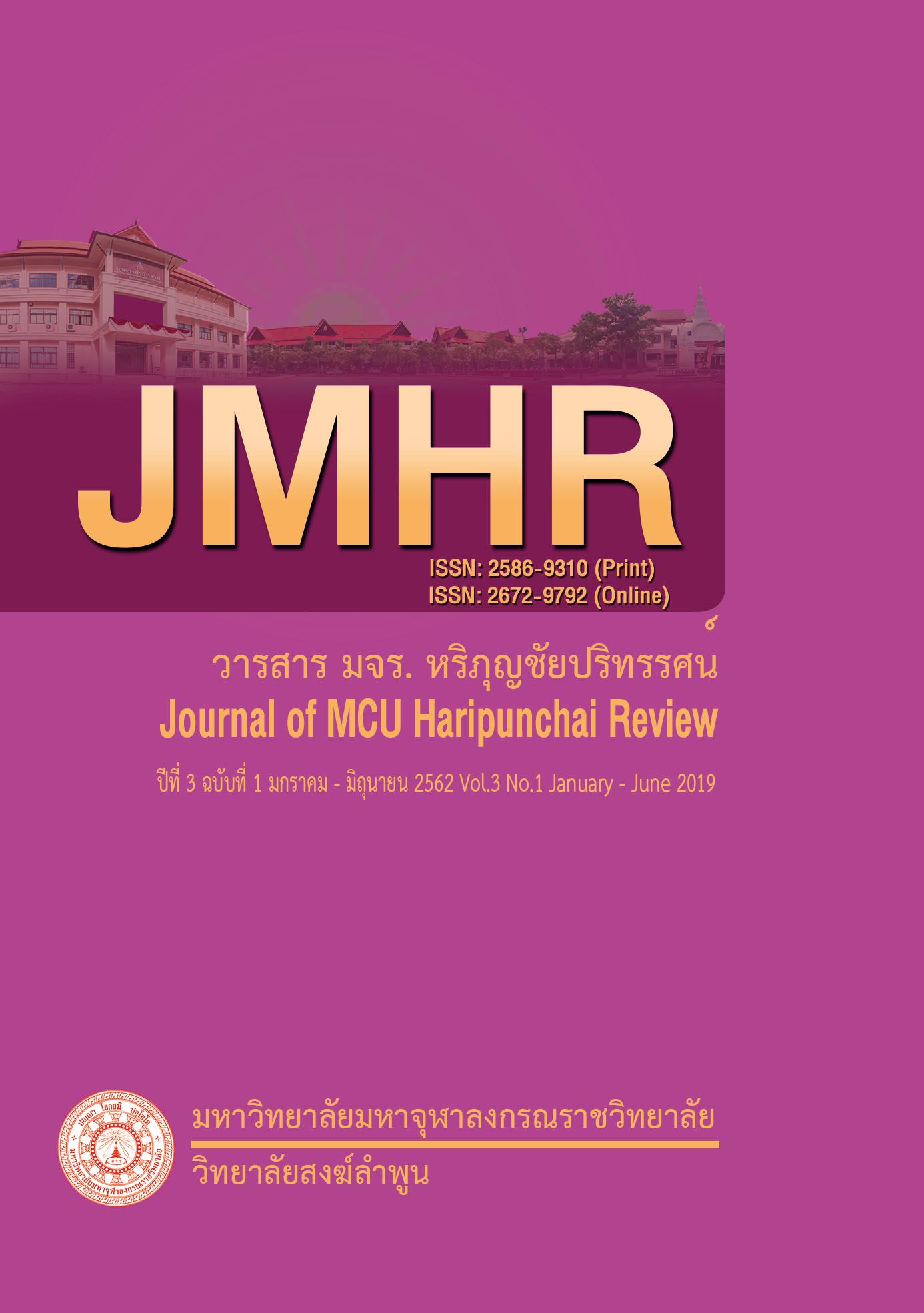Higher Education Institutions for the development of People in Thailand 4.0 as the wisdom of the country
Main Article Content
Abstract
There are many vital situations that affect the need for educational development, such as the advancement of the information technology affecting economic system, the Digital Revolution toward the transition to the industrial revolution 4.0, the impact of being an ASEAN Community on the economic and social system. The main issues presented in this article are as follows: 1) the development process of higher education institutions in Thailand 4.0 and 2) propose the development process of higher education institutions.
The study found that entering 4.0 era of Thailand needs cooperation from all parties to drive the entire system. The important factors that will lead to gain the effective goals rely on different aspects such as education for people of all ages, levels. Everyone should understand the important aspects of education 4.0 along with the concept of educational experts in National Education Commission. The goal of National Education Commission is associating National Education Act B.E. 2560 – 2579 with National Strategies for Education and Development. It can be said that if education leaders and educational personnel, both public and private sectors, understand the aspect of education 4.0 and cooperate to act in accordance with their roles and responsibilities, it will truly lead to Education 4.0 and finally Thailand 4.0
Article Details
References
จรัส สุวรรณเวลา. (๒๕๕๑). ความเป็นอิสระของมหาวิทยาลัยไทย. กรุงเทพมหานคร : สำนักพิมพ์แห่งจุฬาลงกรณ์มหาวิทยาลัย.
ชนิตา รักษ์พลเมือง. (๒๕๓๔). พื้นฐานการศึกษา หลักการแนวคิดทางสังคม. กรุงเทพมหานคร : บริษัทพิมพ์ดีจำกัด.
ชัยวัฒน์ สุทธิรัตน์. (๒๕๕๘). ๘๐ นวัตกรรมการจัดการเรียนรู้ที่เน้นผู้เรียนเป็นสำคัญ. นนทบุรี : พีบาลานซ์ดีไซด์แอนปริ้นติ้ง.
ดร.สุเมธ แย้มนุ่น. เอกสารนำเสนอเรื่อง การดำเนินการจัดทำแผนอุดมศึกษาระยะยาว ๑๕ ปี ฉบับที่ ๓
(พ.ศ. ๒๕๖๐ – ๒๕๗๔). เมื่อ ๒๘ สิงหาคม ๒๕๕๘ ณ โรงแรมรามา การ์เด้นส์.
ไพทูรย์ สินลารัตน์. (๒๕๕๙). การศึกษา ๔.๐ เป็นยิ่งกว่าการศึกษา, กรุงเทพมหานคร : โรงพิมพ์แห่งจุฬาลงกรณ์ มหาวิทยาลัย.
______________. (๒๕๕๘). การอุดมศึกษากับสังคมไทย, กรุงเทพมหานคร : โรงพิมพ์แห่งจุฬาลงกรณ์ มหาวิทยาลัย.
สำนักงานคณะกรรมการการศึกษาแห่งชาติ, (๒๕๔๓). รายงานการเสวนาทางวิชาการ มิติใหม่ของการประเมินผล : การเรียนที่เน้นผู้เรียนเป็นศูนย์กลาง. กรุงเทพมหานคร : ม.ป.พ..
สำนักงานเลขาธิการสภาการศึกษา กระทรวงศึกษาธิการ. (๒๕๕๙). (ร่าง) กรอบทิศทางแผนการศึกษาแห่งชาติ(พ.ศ. ๒๕๖๐ – ๒๕๗๔) ฉบับปรับปรุง ๑ เมษายน ๒๕๕๙. กรุงเทพมหานคร : ม.ป.พ..
สุคนธ์ สินธพานนท์. (๒๕๖๐). ครูยุคใหม่กับการจัดการเรียนรู้ สู่การศึกษา ๔.๐, พิมพ์ครั้งที่ ๑, กรุงเทพมหานคร : ห้างหุ้นส่วนจำกัด 9119 เทคนิคพริ้นติ้ง.
รัฐพงศ์ บุญญานุวัตร. (๑๖ มีนาคม ๒๕๖๒). มติชนออนไลน์. [ออนไลน์]. แหล่งที่มา : https://www.matichon.co.th/ columnists/news_414150
สารานุกรมไทยสำหรับเยาวชนฯ. เล่มที่ ๓๘. เรื่องที่ ๓ การอุดมศึกษา. บทบาทหน้าที่ของสถาบันอุดมศึกษา. (๑๕ มีนาคม ๒๕๖๒). [ออนไลน์]. แหล่งที่มา : http://kanchanapisek.or.th/kp6/sub/book/book.php?book=38&chap=3&page=t38-3-infodetail09.html
อรพรรณ ฤทธิ์มั่น. (๑๔ มีนาคม ๒๕๖๒). ทิศทางพัฒนาบัณฑิตไทย. [ออนไลน์]. แหล่งที่มา :
http://www.moe.go.th/moe/th/news/detail.php?NewsID=50496&Key=news_Teerakiat

